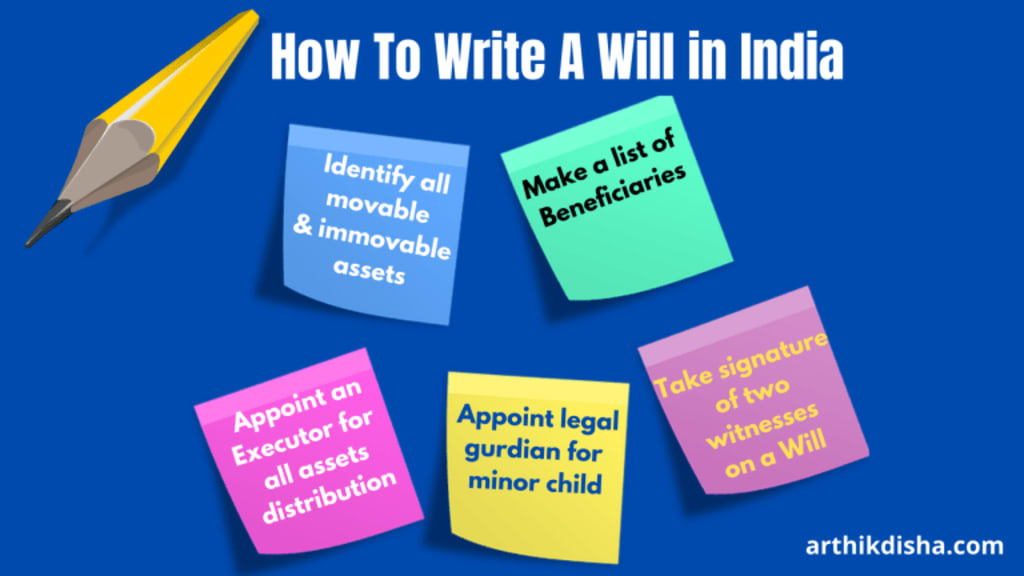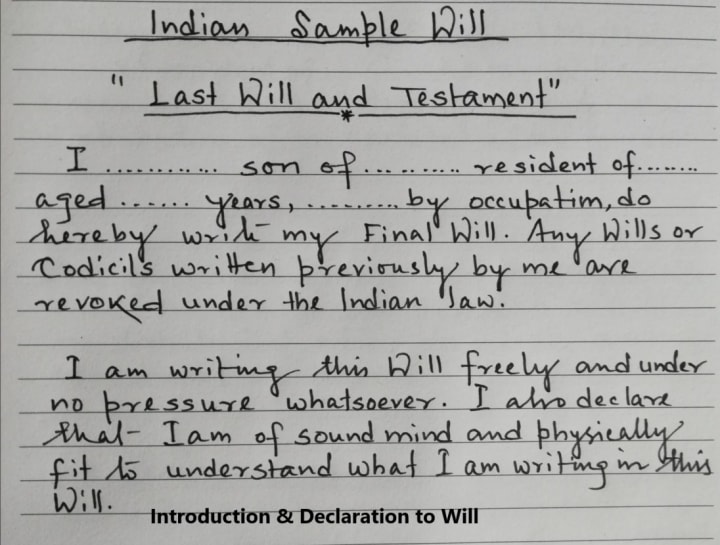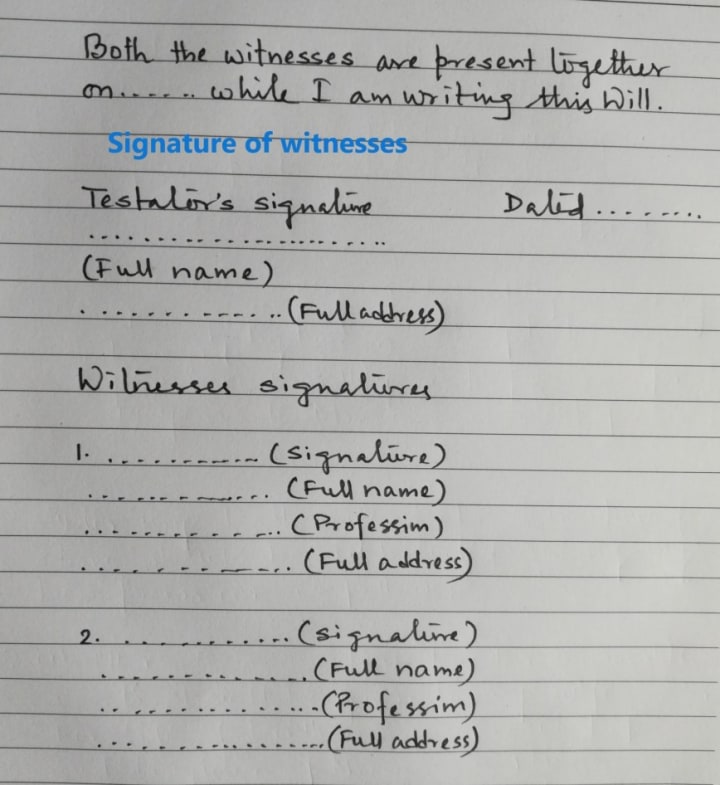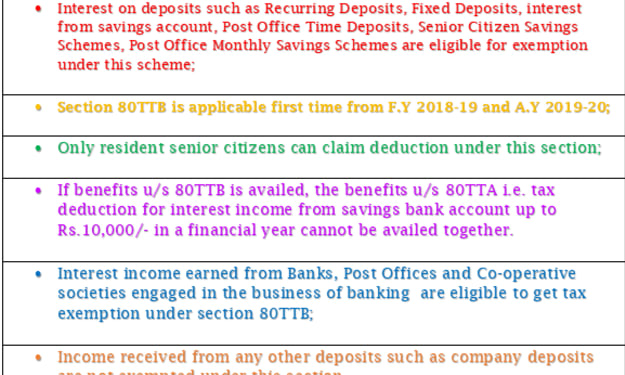10 Easy Steps On How To Write A Will In India For Free
Writing A Will for Free

How to make a Will in India/How to Write a Will in India Free?
A Will is a legal document that ensures that the Will writer’s (Testator) wishes are fulfilled after his death. I have already written a post on What is a Will. You may go through that.
In simple words, Will means taking a decision while you’re alive, that how your properties would be inherited or owned by whom after your death. Writing a Will can make your this dream fulfilled.
So, I can say that making a Will can put you in a peaceful mental zone. A Will comes into effect only after the death of the Will writer or the Testator. If the testator is alive, WIll can not be operational.
This is very important to know that if one dies without making or writing a Will, his properties are liable to be distributed as per the Hindu Succession Act. In that case, the inheritance rules are to be followed.
Many a time it was seen previously that after the demise of the father of a family, the family members get themselves into some litigations regarding the distribution of their ancestral properties.
This is not desirable at all. There comes the benefit of making a Will. Having written a proper Will would ensure that the legal heirs or the family members are far away from getting into a legal inconvenience or anxiety.
Inherited properties without having a Will brings forth some disputes upfront. There comes the benefit of writing a Will.
In this post, I would discuss regarding 10 Easy Steps on How to Write a Will on your own, How to make a Will in India and How to make a Will free.
I am quite sure that after going through this post, you would be able to write a Will on your own and it is completely free.
Before going into detailed analysis on How to make a Will in India, let’s just see What is a Will and what it does? I mean the definition of a Will and benefits of having a Will.
What is Will? Meaning of A Will
As per Section 2(h) of the Indian Succession Act, 1925, A will is a legal declaration of the intention of the testator regarding his properties, which he desires to be fulfilled or comes into effect after his death.
Thus, the main essence of the Will is a legal declaration in the form of a legal document, in regard to one’s property distribution after his death.
Complications come into effect when the testator leaves his legal heirs with huge properties but no will from the testator.
The absence of a legal declaration in the form of a will makes the legal heirs hiccups continuously.
Therefore a person who has some property must go for writing a will so that after his demise his legal heirs are better off and not sunk with deep trouble.
As of now, we are still very much unaware of What is Will? Will Meaning and Property Will. This may be due to our ignorance and possibly for our least knowledge in this category. Therefore it can be said that having or writing a Will is a part of the Estate Planning procedure.
You can check more details on Estate Planning Below.
What is Estate Planning
⇒What are the misconceptions on How to write a Will for free?
If you ask people regarding their unwillingness not to write a Will for free, they will provide you with a plethora of excuses for that. Few excuses are like: I” I am quite fit now and not going to die”, ” My wealth is very low, why do I need to write or make a Will”, ” Will is for wealthiest persons” and so on.
Look if you want, I can give you hundreds of reasons for writing a Will or making a Will. Just make sure that there is nothing so-called less wealth or high wealth. Your money is your money how little may it be.
It is your sole duty that after your absence your movable or immovable properties need to be distributed to your legal heirs as per your wishes. Would you want any dispute over claims of your left out properties after your death? I think no one would.
If you die intestate in India, I mean without making a Will, your properties would be distributed as per the Hindu Succession Act. In that case, your choice for asset distribution can’t get fulfilled.
Therefore, stop giving lame excuses and make it a reality that you can write a Will on your own without even taking the help of any law firm or professionals.
⇒What are the requirements of a valid Will?
The following important points help you make and write a valid will. They are summarised below as follows.
- Will must be handwritten by the Testator and not typed;
- Will writer must attend the age of 21 years;
- A Will comes into effect only after the death of the Testator or the writer;
- There should not be any correction in the Will. A new page must be used if there is any correction or mistakes;
- Will must be signed by the Testator on the same date of preparation. Preparation date and attestation date must be same;
- The Executor of the Will shall not be a beneficiary or vice versa;
- The condition of the Will must always be revocable;
- A Will can be altered and modified by Codicil;
- Only one Will at a time must be in operation;
- Will is written voluntarily and by not forcefully;
- Will must be signed by the two witnesses who are neutral & unbiased.
⇒How to write a Will in India/ How to make a Will in India for free?
Yes, you are reading it right. You can write a Will on your own at the no cost. I mean you can make a Will in India for free. You don’t need to be an expert or you don’t need any legal advice from any professional firm to make a Will for yourself.
You can make a Will even in a plain paper or you can notarize it. There is also an option that you can register your Will to your jurisdictional Sub Registrar Office. But this is not mandatory at all. Completely voluntarily. But registering the Will have some benefits undoubtedly.
⇒Things to keep in mind while writing a Will on your own
- The person writing the will must be of sound mind and health;
- The person must attain the age of 21 years;
- Mention the name & address of the Testator and the date of writing the Will;
- The intention of the Will must be very clear without any ambiguity;
- The Will is being made voluntarily and not forcefully;
- The properties to be bequeathed must be properly identified with proper details;
- Will must clearly mention the relationship with the testator to whom the properties are being bequeathed;
- Each bequeathing must be in a new paragraph;
- Will should mention the names of the executor, trustees or guardians appointed if any;
- Will must mention whether it the first Will or the Last Will so that it can’t be further challenged;
- Will should not have any blank space.
⇒10 Easy Steps on How to write a Will in India / How to make a Will in India
You may follow the below 10 steps while writing a Will on your own. These steps would guide you in making a Will in India at free of cost.
⇒Step 1: Introduction to Will
While writing a Will you should clearly mention the words Last Will and Testament. This will ensure that this is the last Will and you don’t have other Will in operation. Also, the Will must be signed by the testator. The signature of the testator must be clear and legible so that it makes the Will legal.
Thus, a Will shall be signed or attested by the testator in the presence of the witnesses. But not necessarily two witnesses must be present at the same time.
⇒Step 2: Declaration in the Will
This declaration pat for writing a Will is the most important section for you. Here you should clearly mention your full name i.e. the name as written in your identification documents. You should also write your father’s name, your permanent as well as temporary dwelling address if any.
Also, you need to clearly mention that while writing this will you are of sound mind i.e. both physically and mentally fit and you are writing the Will voluntarily as per your wish and under no force or threat. This can make your Will stronger and presentable and undisputable.
⇒Step 3: Appointing an Executor
Since after your death, there will be no one to execute your Will, you need to appoint an Executor who will execute and ensure that your wishes are fulfilled after your demise.
Therefore, while writing a Will, it is very much essential for you to write down the name of the Executor, his or her address. The appointed Executor must be a neutral or unbiased person. It means it must not have any relationship either with your beneficiaries or to their legal heirs.
The Executor acts as a legal guardian( solely appointed by you) for distribution of your properties after your death among your intended beneficiaries. Keep in mind that, your appointed Executor can not be a beneficiary of your assets.
⇒Step 4: Declaring the names of beneficiaries
You should clearly mention in the Will the names of the beneficiaries to whom you want to distribute your properties. The full name of the beneficiaries along with their full address and the relationship you have with them should be written in the Will in a clear and lucid manner.
This may avoid any future litigation among the beneficiaries regarding the distribution of your assets.
Further, you should write the %(Percentage) of share that each beneficiary should get for immovable and movable properties that you would leave after your demise.
⇒Step 5: Identification of properties or assets
Since the Will is being made for proper distribution of your movable and immovable properties, it is very much crucial for you to identify and write down all the details of your properties.
Here making a list of all your assets both movable such as Cash, Bank balance, Shares and Debentures, Mutual Funds, Jewelry, precious metals, precious handicrafts, artwork and etc. and immovable assets such as Land, Building, Flats, Agricultural land and other alike assets.
You should keep in mind that you can Will those properties that you own without any encumbrance. I mean the ownership must be clear on your name. You can Will the self-earned or self-acquired properties.
You can’t include any asset that you jointly own i.e. a joint Bank accounts, your share in a partnership firm. But you can include your portion of share definitely in your Will.
Therefore you should prepare a Balance Sheet of your all Assets and Liabilities. Which liabilities you want to dispose of using which of your assets after your death that also needs to be clearly mentioned in your Will so that in your absence, your legal heirs would dispose of your liabilities with ease.
⇒Step 6: Appointing Guardian for minor children
If you are going to add in your beneficiary list minor children, you must appoint a legal guardian for those minor children as well. This means that till the minors attend the age of 18 years, your appointed guardian would act as the custodian of the assets on behalf of the minors.
Thus, you should clearly mention the full name, full address and relationship of the guardian with the minors if any in your Will.
⇒Step 7: Asset distribution among heirs
In the absence of the main family member, legal disputes arise regarding distribution of his left out properties. In India, it has been a common phenomena.
Therefore, to avoid this litigation while writing a Will you must clearly mention that which assets in what percentage(%) of share to be distributed among the beneficiaries or your heirs.
For each beneficiary, you must use a new paragraph. You must always use the % term while dividing your properties and do not use any absolute value(Like Rs. 10 Lakh). Since it may so happen that after your death the valuation of properties may increase in the future, and your specific or absolute monetary asset allocation may cause grievances among the heirs.
⇒Step 8: Signing the Will
A most important part of writing a Will is putting your signature on it. Will must be signed in front of the witnesses. Witnesses must see you signing or attesting the Will. You should keep in mind that the Will writing date and signing date must be the same.
For example, If you are writing a Will on 05.09.19 it should be signed on the same day on 05.09.2019. If you don’t do this, your Will would be challenged or questionable in the Court of law. You would not want that I guess. Would you?
⇒Step 9: Revocability of the Will
While writing a Will, you should mention that the Will is a revocable one. That means it can further be altered, modified during your lifetime. If the conditions are such that it can’t be revoked or altered, it will be considered as invalid and void.
As per Section 62 of the Indian Succession Act, 1925, a Will is liable to be revoked or altered any number of times by its writer during his lifetime. Any conditions that make the Will irrevocable would be void one.
⇒Step 10: Signature of witnesses
The last part on How to write a Will on your own is taking the signature of two witnesses. This means, you have written your Will in front of the two neutral and unbiased person, who you should not have any relationship with.
Further, your witnesses must not be any beneficiary of your properties. Even they should not have any relationship with your beneficiaries or their legal heirs as well.
It would be very much beneficial if you engage the two witnesses one be a Doctor and another one a Lawyer. Because the court of law comprehends these two people from two different professions as the most trustable and reliable in terms of witness.
Their representations in the court as witness brings more value in the eyes of the law.
Further, if the situation arises, the Doctor(one of your witnesses) may certify before the Court that the witnesses signed the Will by themselves and while you wrote the Will, you were of sound mind and to the best of your health. It expresses the legal veracity of your Will.
Here you can find a handwritten sample Will India
While you are searching the internet regarding how to write a Will, you must consider the below-handwritten sample Will India. This will give you a fair idea on how to write a Will without taking the help of Lawyer.






About the Creator
Arthik Disha
A Personal Finance Blogger. Passionate about finance.






Comments
There are no comments for this story
Be the first to respond and start the conversation.